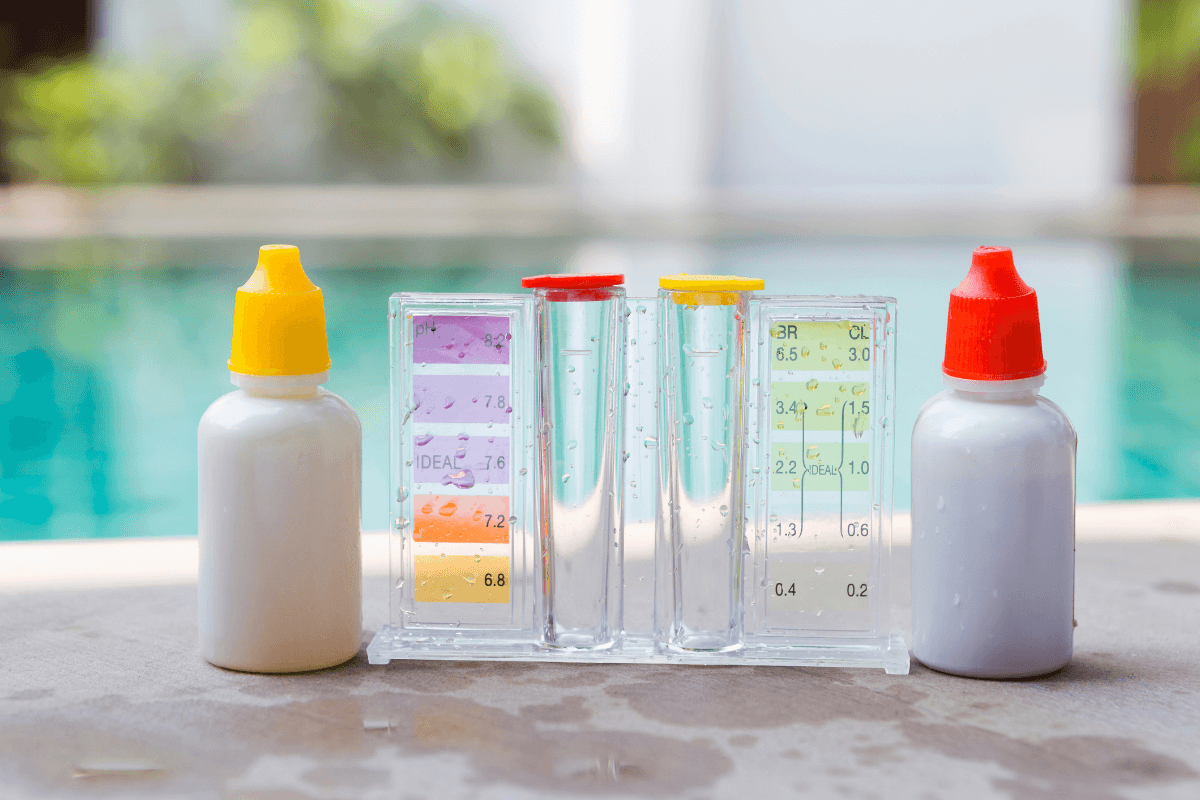How to Test Pool Water
One of the most fundamental ways to maintain a clean and healthy swimming pool is to regularly test the water. Pool water testing ensures a proper balance of chemicals, which is crucial for preventing the growth of harmful bacteria and algae, protecting the pool surfaces and equipment, and ensuring that the water is safe and comfortable for swimmers.
At Aqua Pool & Patio, we are pleased to offer free pool water testing at our East Windsor, CT location. If you live in the area, just bring in a sample of your pool water and we’ll issue a full report on its composition using our sophisticated computerized water testing system. Our trained staff can walk you through the results of the report and send you home with the supplies you need to get your pool water balanced for optimal cleanliness and enjoyment. However, if you’re planning to test your pool water on your own, we’ve compiled the following overview to help guide you through the process.
Pool Water Testing Supplies
To get started testing your pool water, you’ll need the proper supplies. There are a few different types of water tests available:
- Test strips. These are easy-to-use, inexpensive, and provide quick results for basic testing of pH, chlorine, alkalinity, and more.
- Liquid test kits. These kits offer more precise measurements and can test a wider range of chemical levels.
- Digital testers. While digital testers are generally more expensive than the other two options, some pool owners prefer them because they quickly provide highly accurate results, which are easy to read via a digital display. Some testers also include results history, which allows you to assess the health of your pool water over time.
Steps to Testing Your Pool Water
Once you’ve gathered your preferred type of water test, as well as a clean container for collecting samples, here are some key steps to take:
- Circulate the water in the pool. If the water in your pool is stagnant, test results may not be reliable. Therefore, prior to collecting a sample, run the pump at a high setting for at least an hour to adequately circulate the water.
- Collect a water sample. Using the clean container, collect a water sample from about 12-18 inches below the surface. To ensure that the water you’re testing is representative of the entire pool, avoid taking samples near skimmers or return jets.
- Test the water. The process of testing the water will depend on which type of test kit you’re using. With test strips, simply dip the strip into the water and hold it there for a few seconds. Then, remove the strip and hold it horizontally to prevent the reagents from bleeding into each other. Compare the colors seen to the chart provided on the test strip packaging, which will show levels of pH, chlorine, alkalinity, etc. If you’re using liquid test kits, fill the test container with pool water to the indicated level, add the recommended number of drops of each reagent, cap the container, and shake it to mix the reagents with the water sample. Then, compare the resulting color to the provided chart to determine the chemical levels. Finally, if you’re using a digital tester, ensure that it is calibrated according to the manufacturer’s instructions, then submerge the probe into the water sample. Wait for the reading to stabilize and then record the results displayed on the digital screen.
Interpreting the Results
Once you’ve sampled the pool water, here are the key values to look for:
- pH levels. The ideal range is between 7.4 and 7.6. If the pH is too low (acidic), it can cause irritation to swimmers and corrosion to equipment. If too high (alkaline), it can lead to scale formation and cloudy water.
- Chlorine levels. For most pools, 1-3 ppm (parts per million) is recommended. This ensures effective sanitization without causing skin irritation.
- This should be between 90-120 ppm. Alkalinity acts as a buffer for pH, preventing drastic changes.
- Calcium hardness. The optimal range is 200-500 ppm. Low calcium can cause etching of the pool surface, while high calcium can cause scaling.
How Often Should You Test Your Pool Water?
During swimming season, pool water should be tested at least once a week. However, after heavy usage, rainstorms, or noticeable changes in water clarity or color, the water should be tested as soon as possible.
Need assistance with keeping your pool in prime condition? In addition to our free water testing services, Aqua Pool & Patio offers pool maintenance services tailored to your needs, whether you’d prefer weekly visits, seasonal help or anything in between. Call us at 860-623-9886 to learn more!




